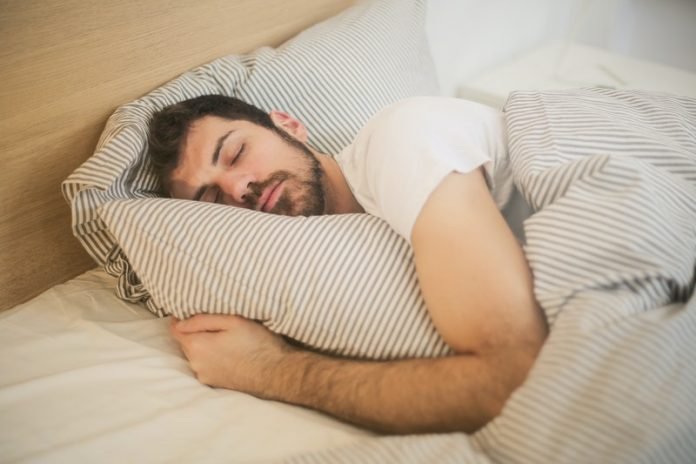
In a new study from Uppsala University, researchers found men’s sleep may be more powerfully influenced by the lunar cycle than women’s.
Previous studies have produced somewhat conflicting results on the association between the lunar cycle and sleep, with some reporting an association whereas others did not.
There are several possible explanations for these discrepant findings, such as that some of the results were chance findings.
However, many past studies investigating the association of the lunar cycle with human sleep did not control their analyses for confounders known to impact human sleep, such as obstructive sleep apnea and insomnia.
During the waxing period, the amount of illuminated moon surface as seen from Earth increases, and the moment that the moon crosses a location’s meridian gradually shifts to late evening hours.
In contrast, during the waning period, the illuminated surface decreases and the moment that the moon crosses a location’s meridian gradually shifts to daytime hours.
In the study, the team used one-night at-home sleep recordings from 492 women and 360 men.
They found that men whose sleep was recorded during nights in the waxing period of the lunar cycle exhibited lower sleep efficiency and increased time awake after sleep onset compared to men whose sleep was measured during nights in the waning period.
In contrast, the sleep of women remained largely unaffected by the lunar cycle. The results were robust to adjustment for chronic sleep problems and obstructive sleep apnea severity.
One mechanism through which the moon may impact sleep is sunlight reflected by the moon around times when people usually go to bed.
In addition, a recent study suggests that the male brain may be more responsive to ambient light than that of females.
If you care about sleep health, please read studies about a new effective way to treat sleep loss with less side effects and findings of sleep too little or too much linked to this deadly lung disease.
For more information about sleep and your health, please see recent studies about this common sleep habit may strongly harm your heart health and results showing that this herb may help you sleep better.
The study is published in the journal Science of the Total Environment. One author of the study is Christian Benedict.
Copyright © 2021 Knowridge Science Report. All rights reserved.



